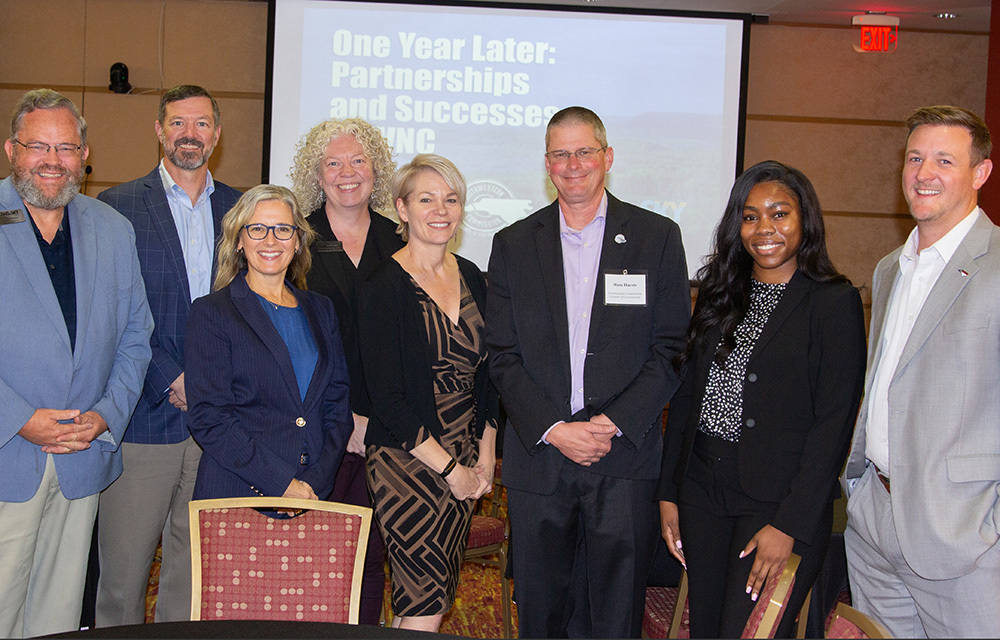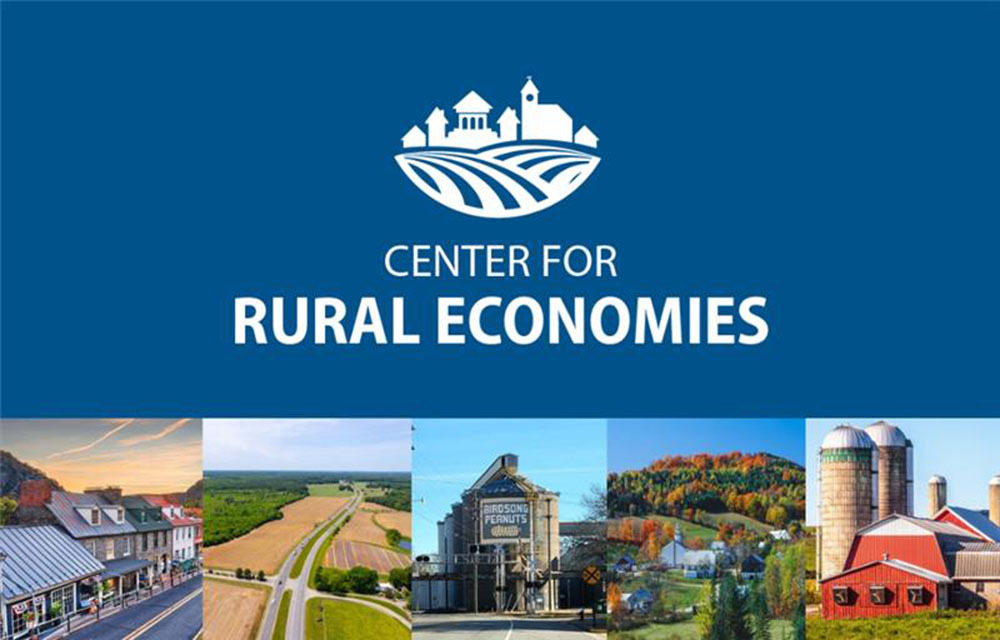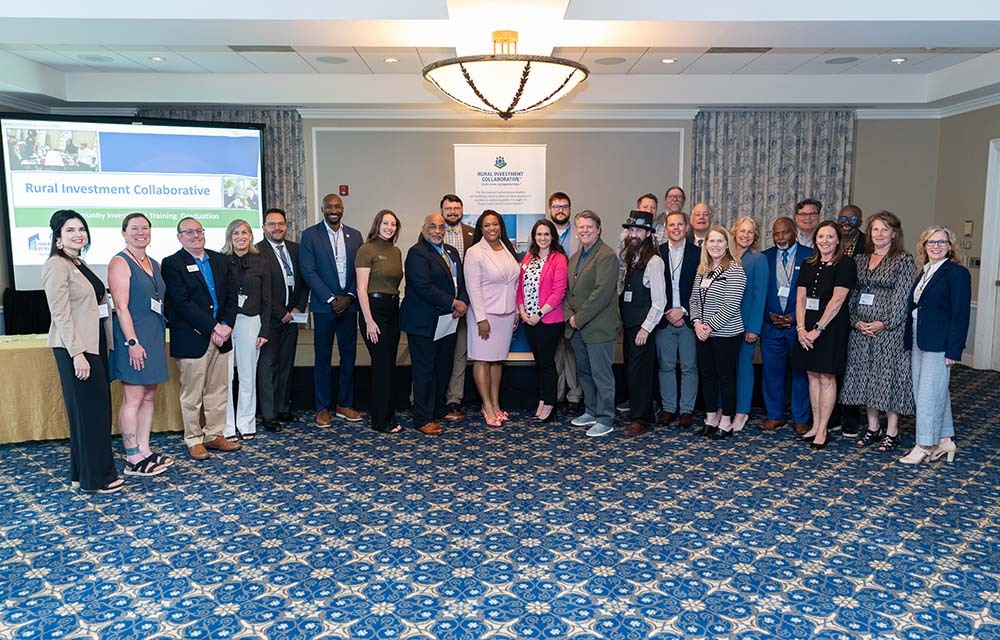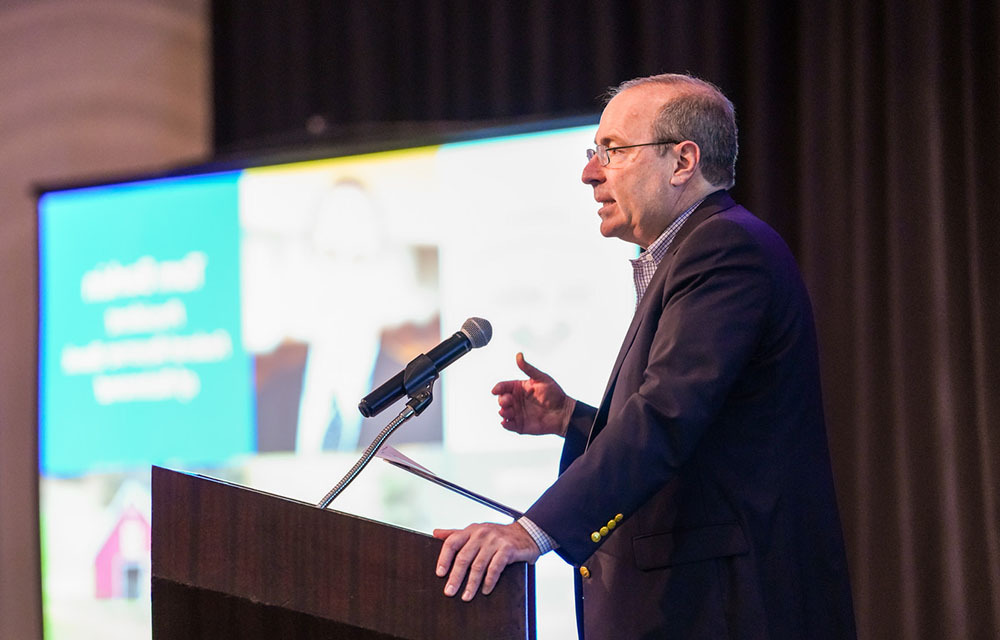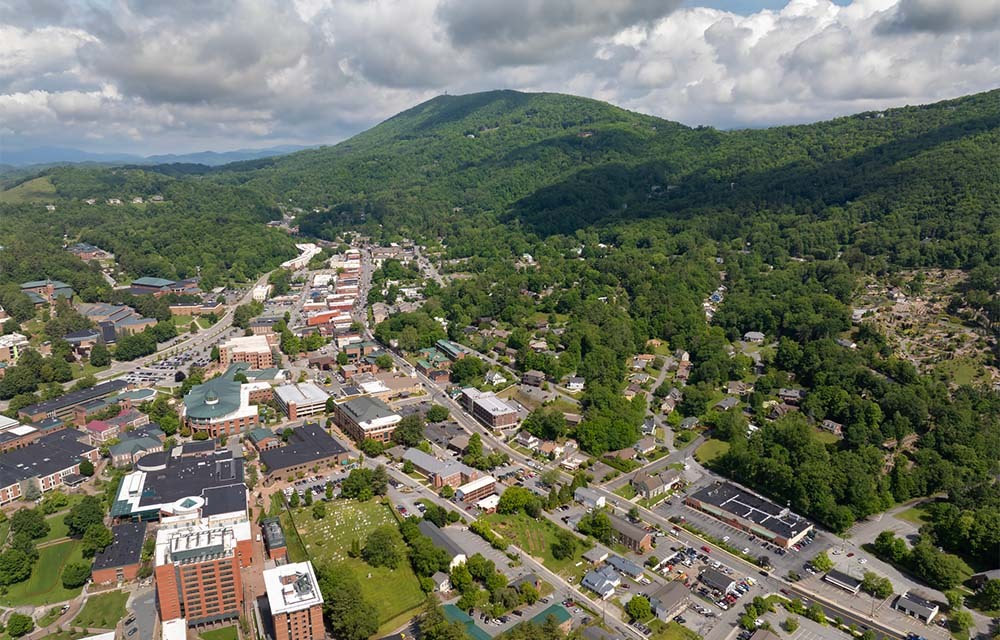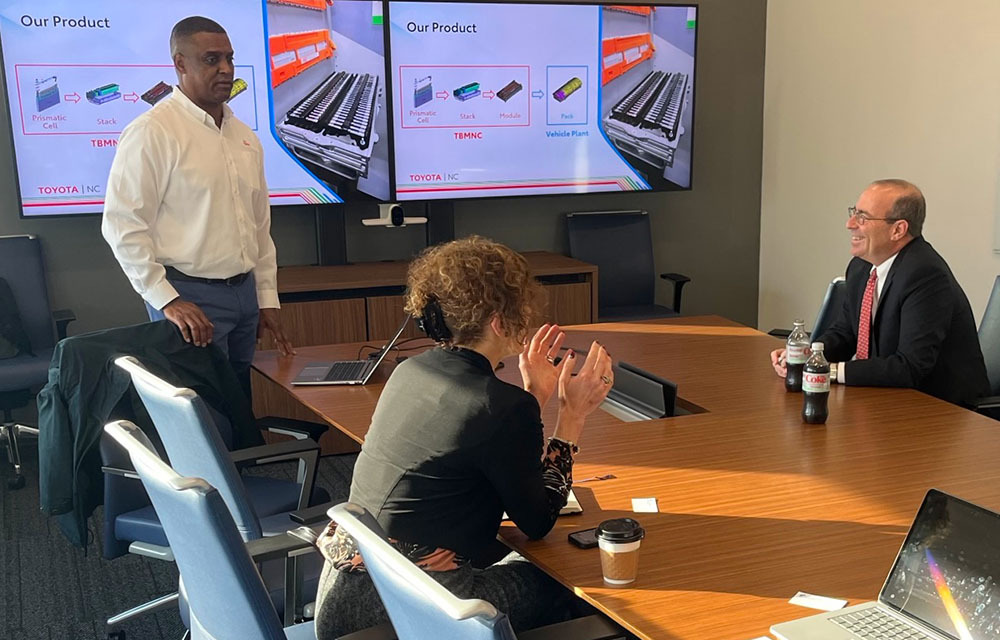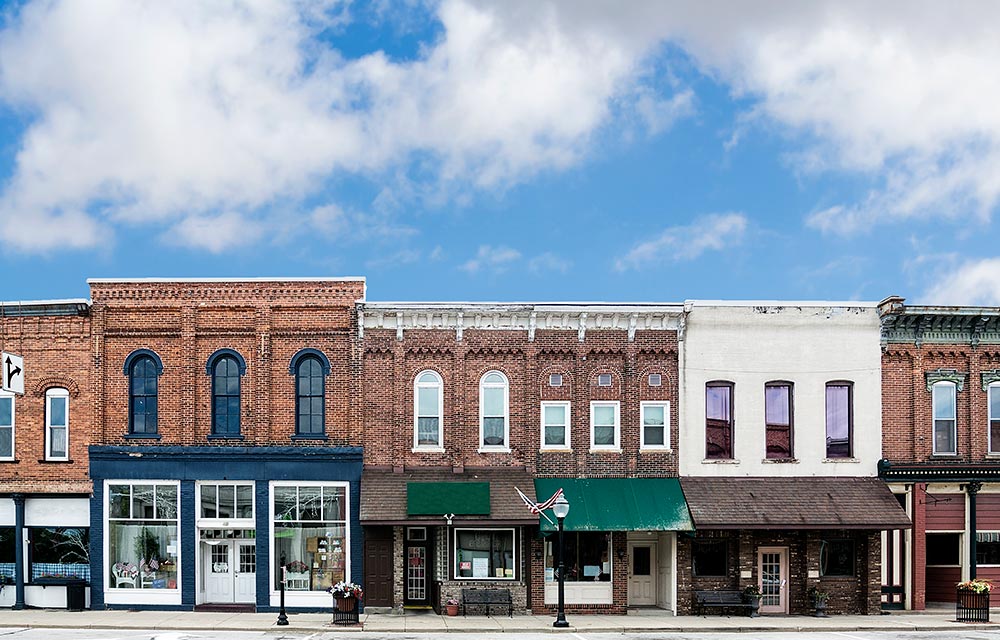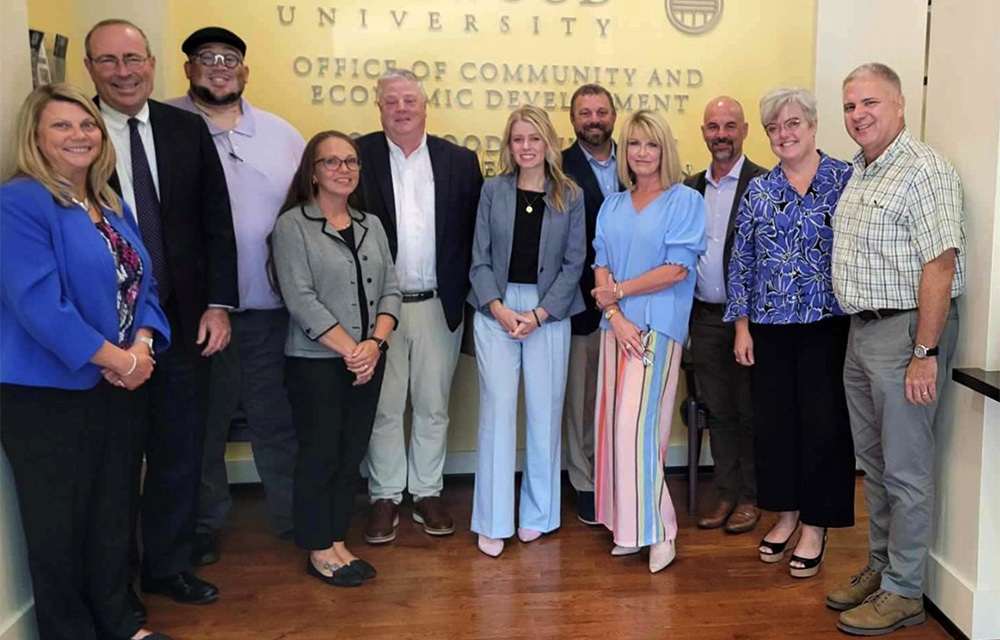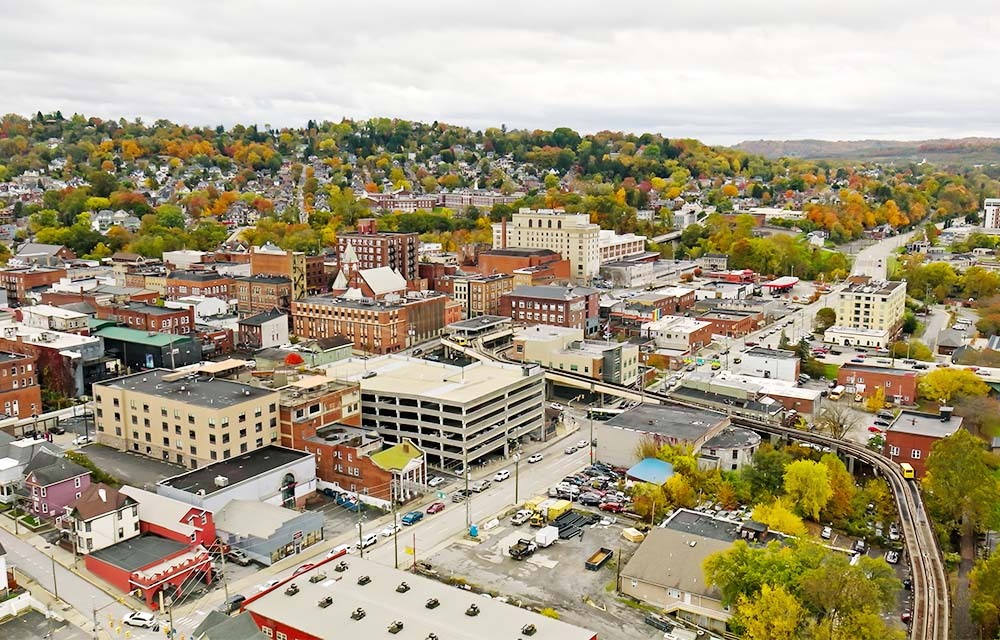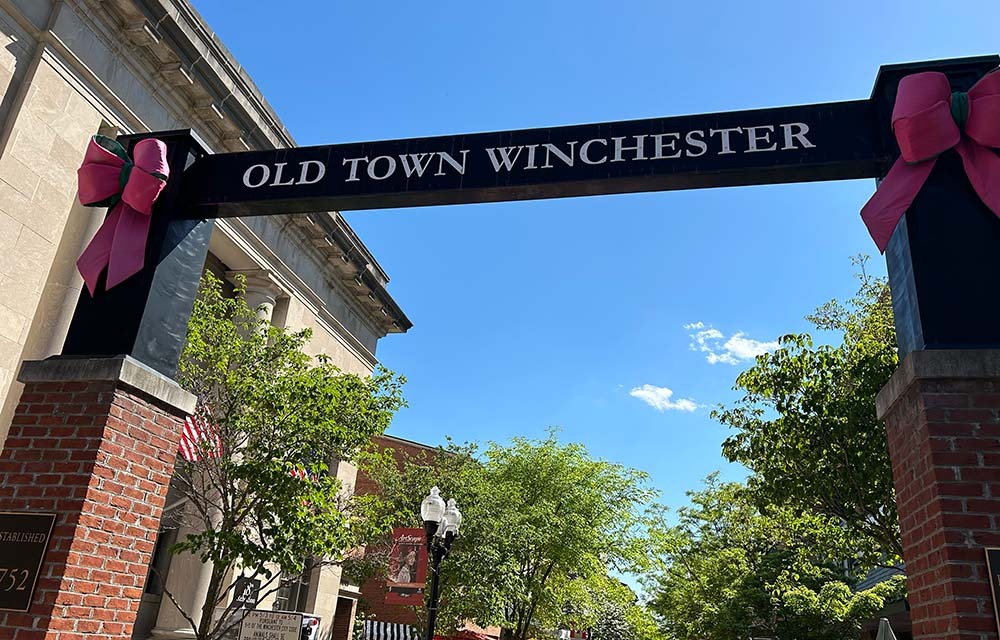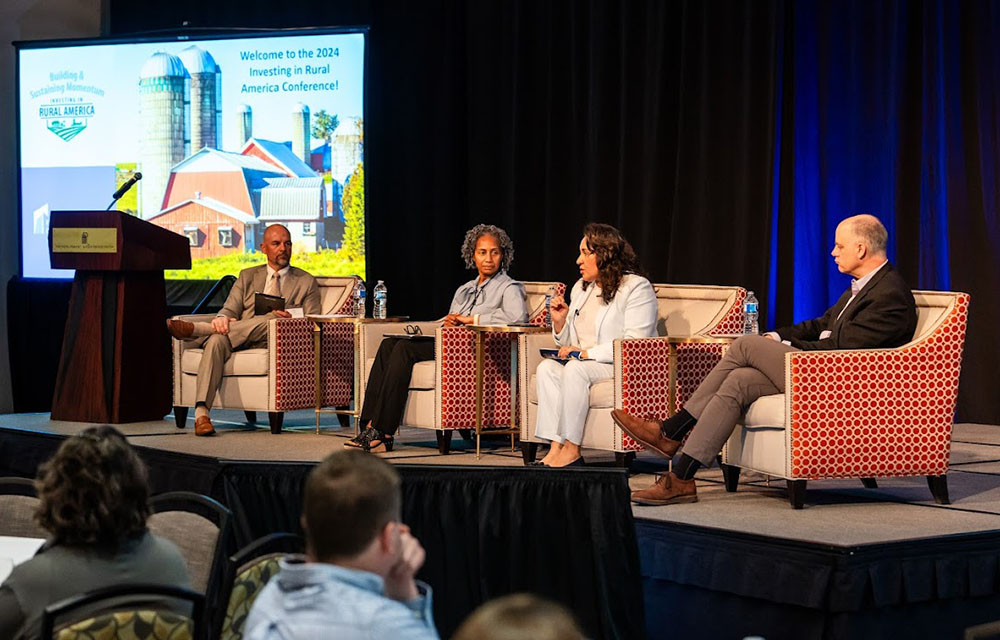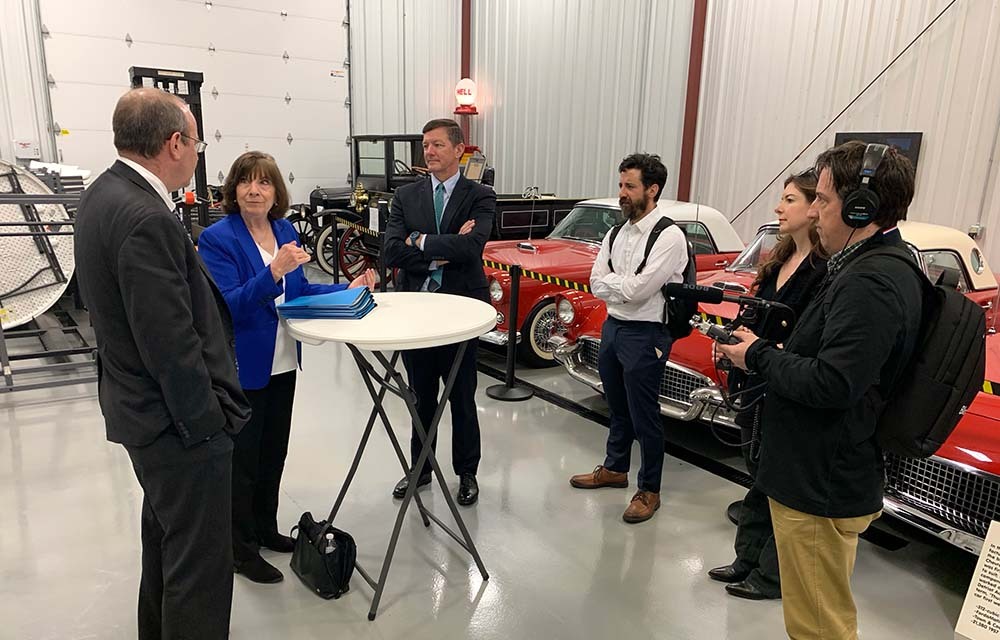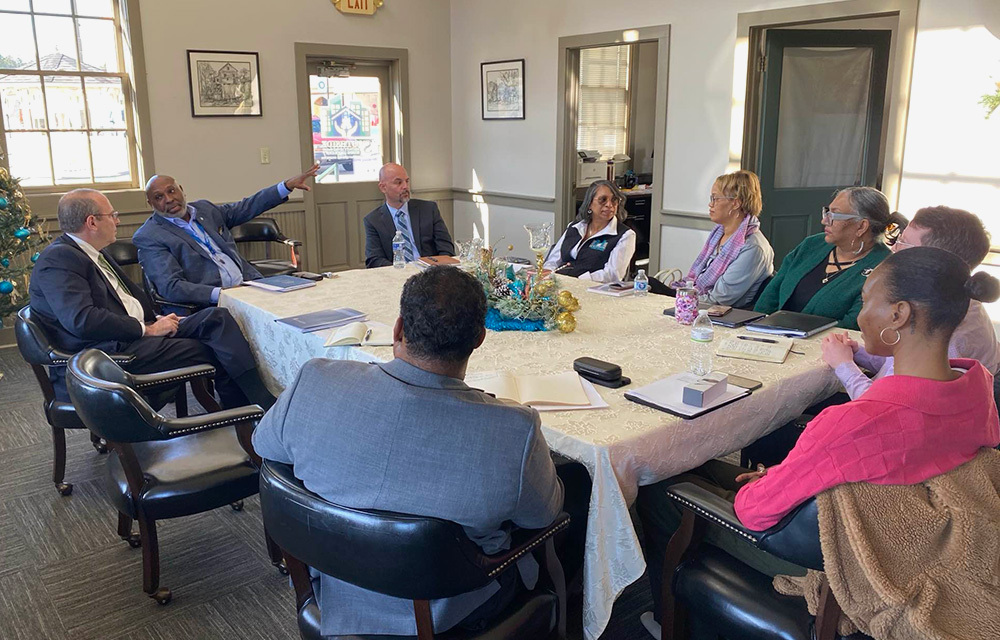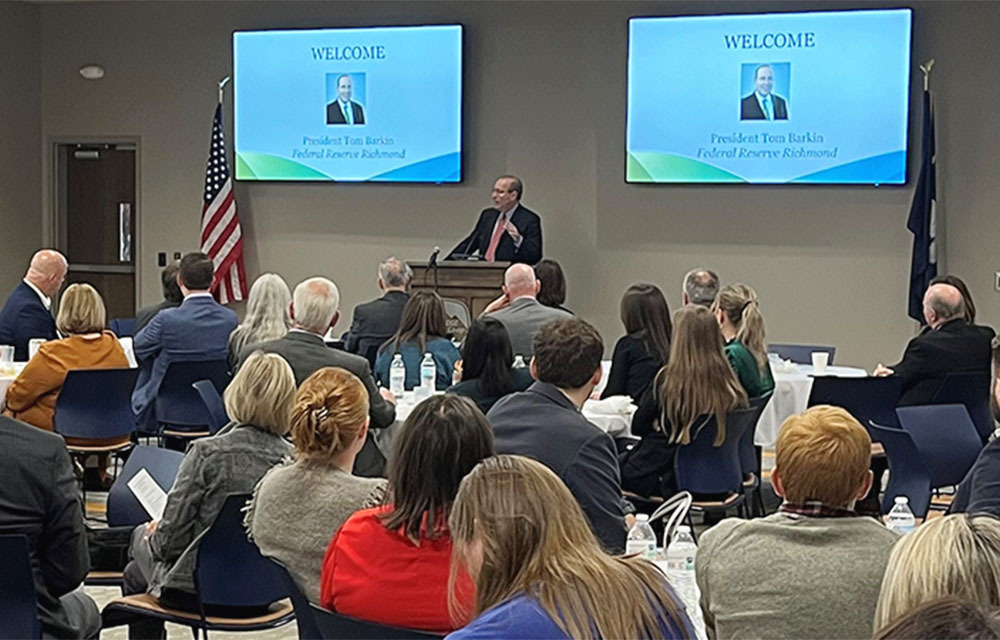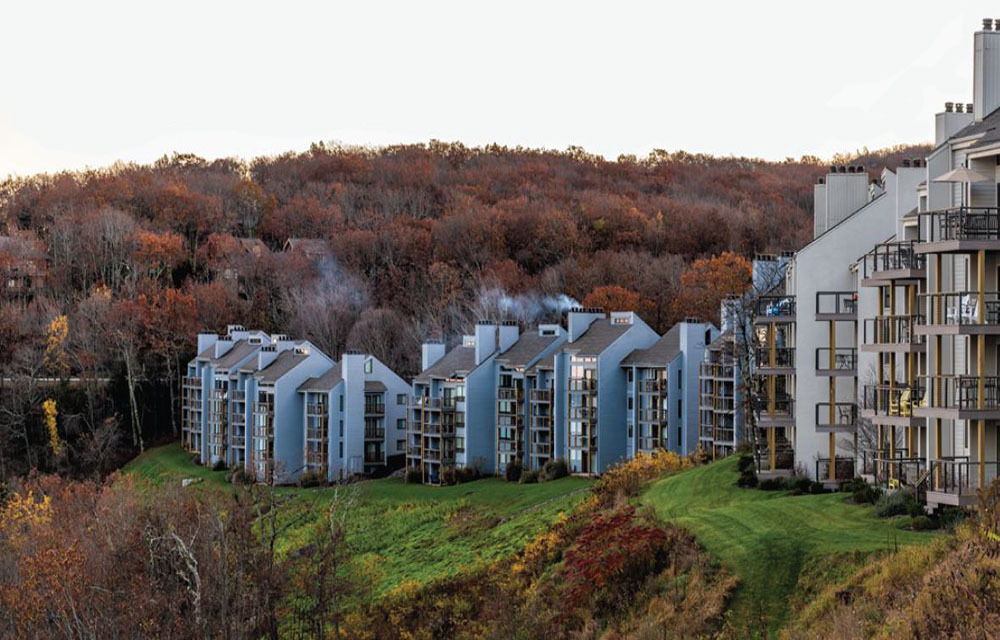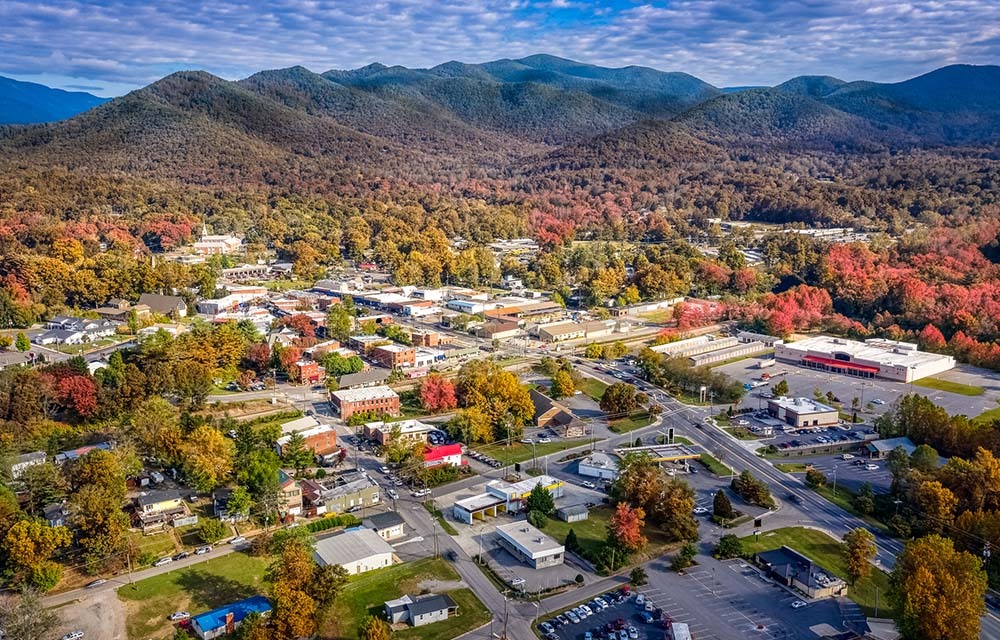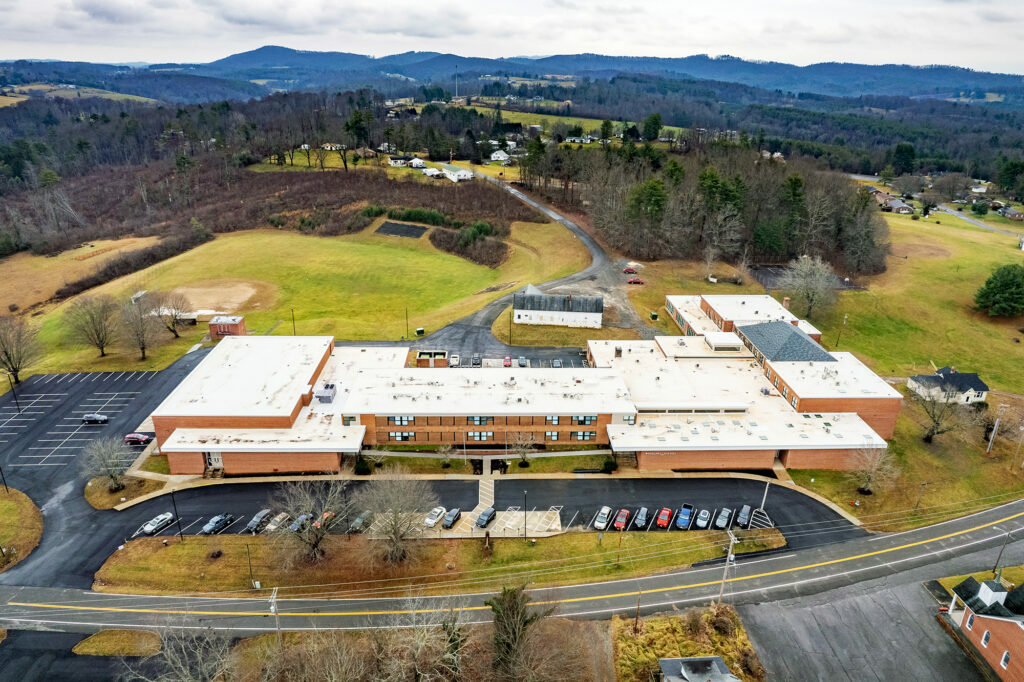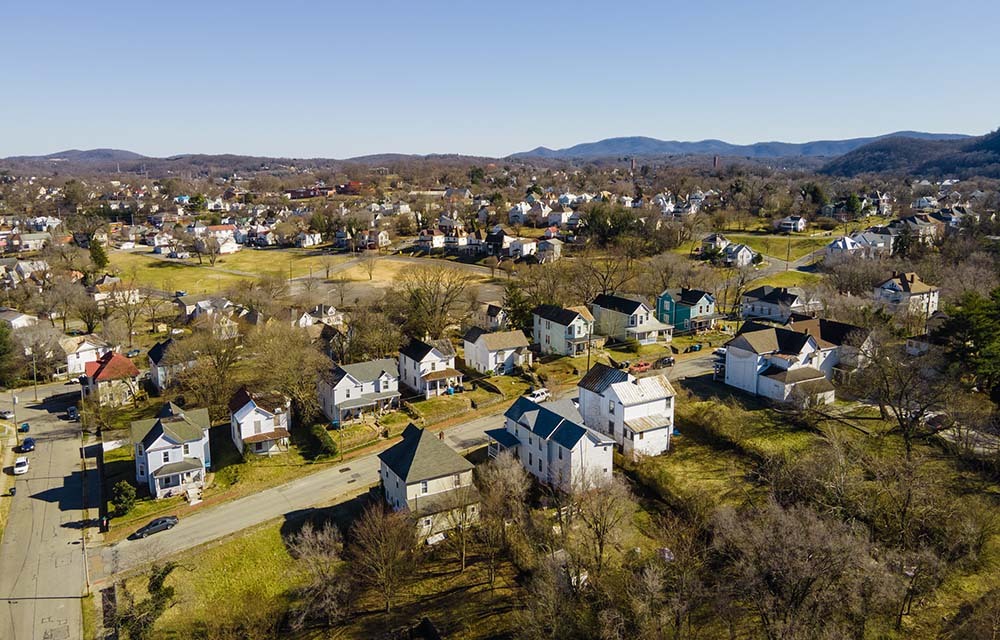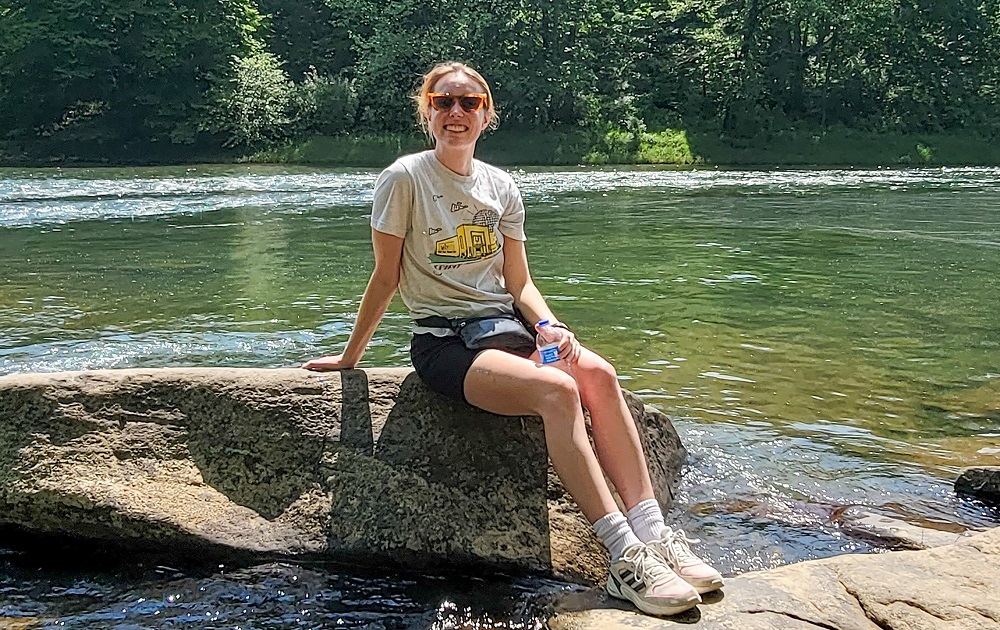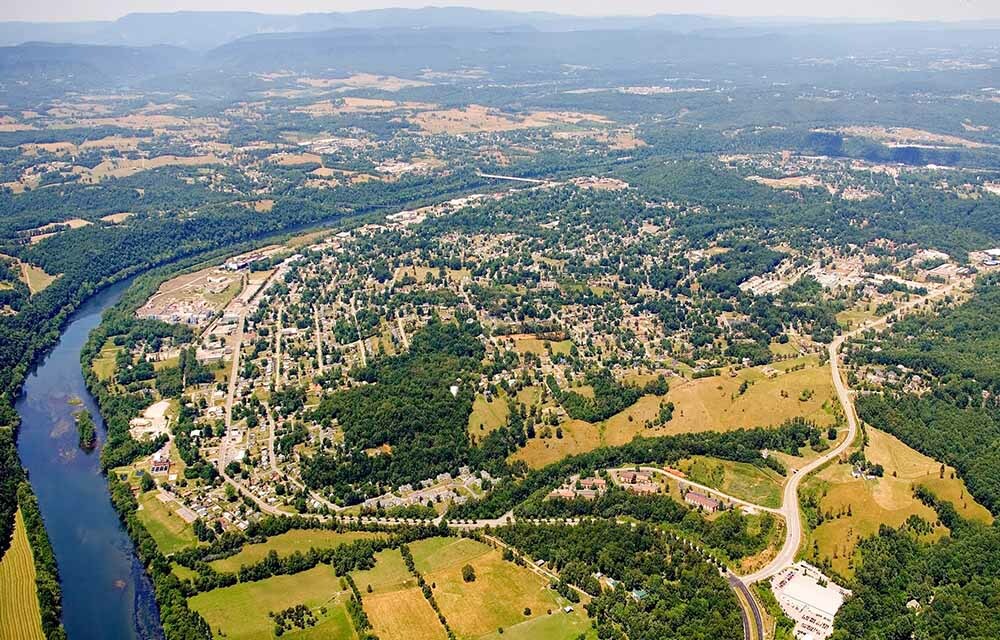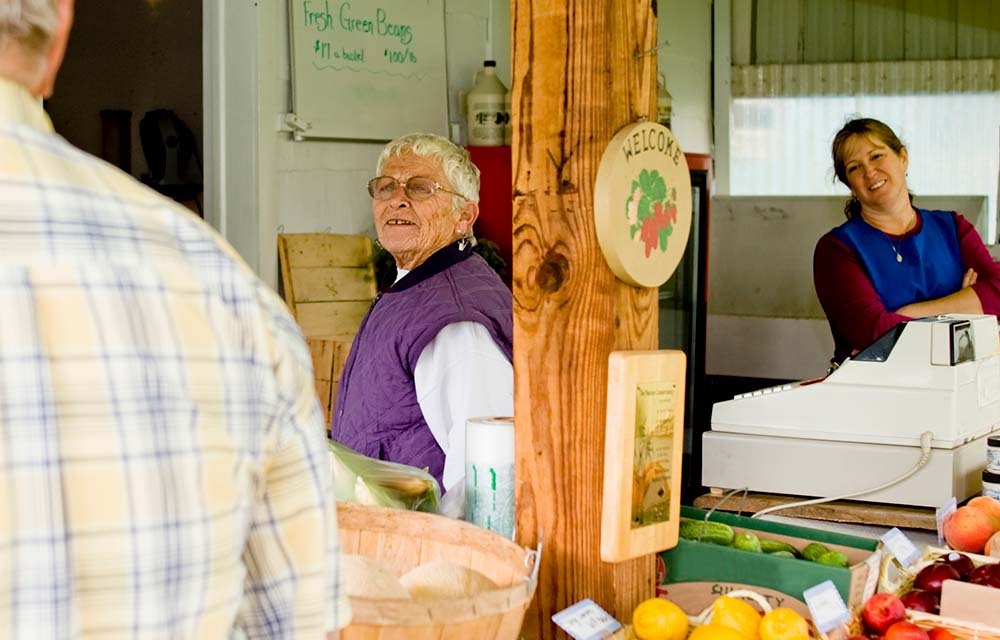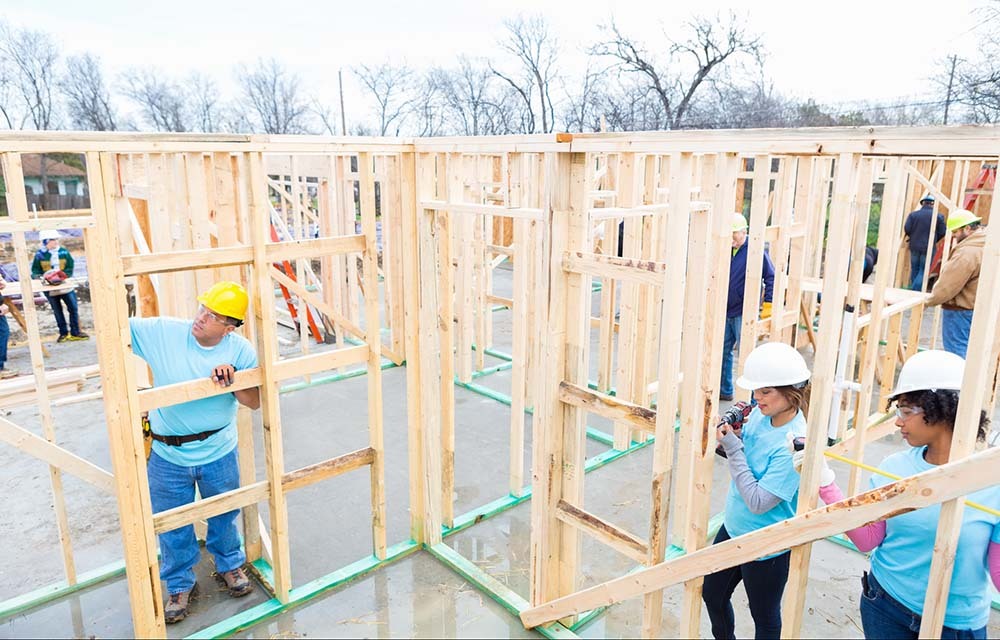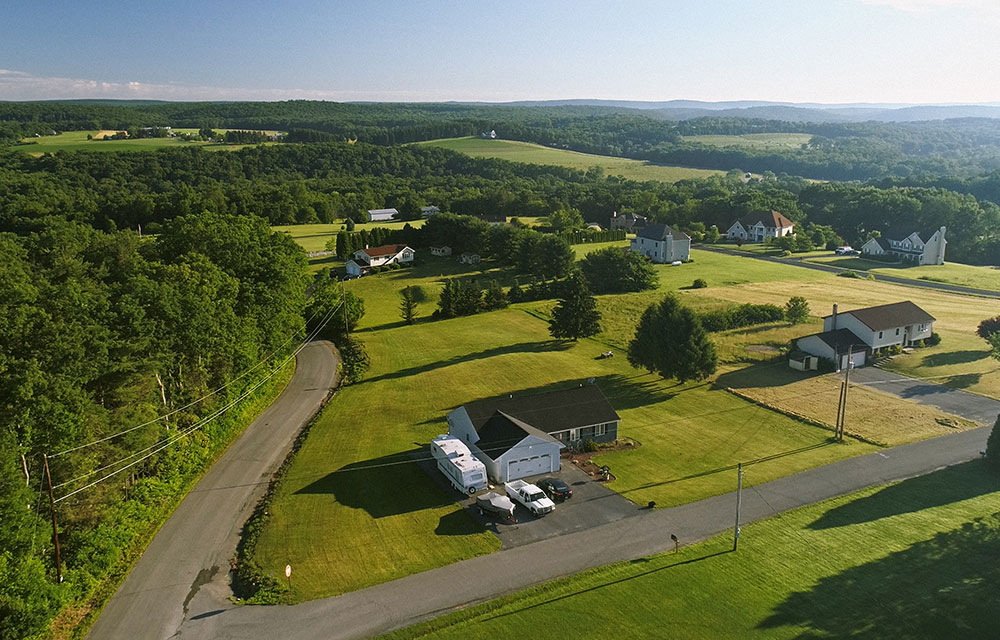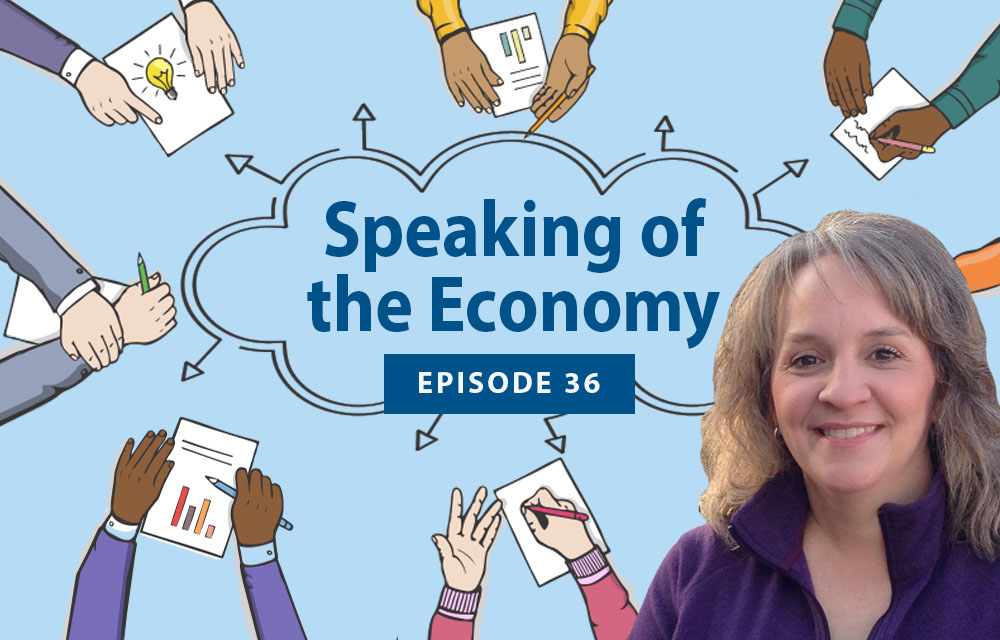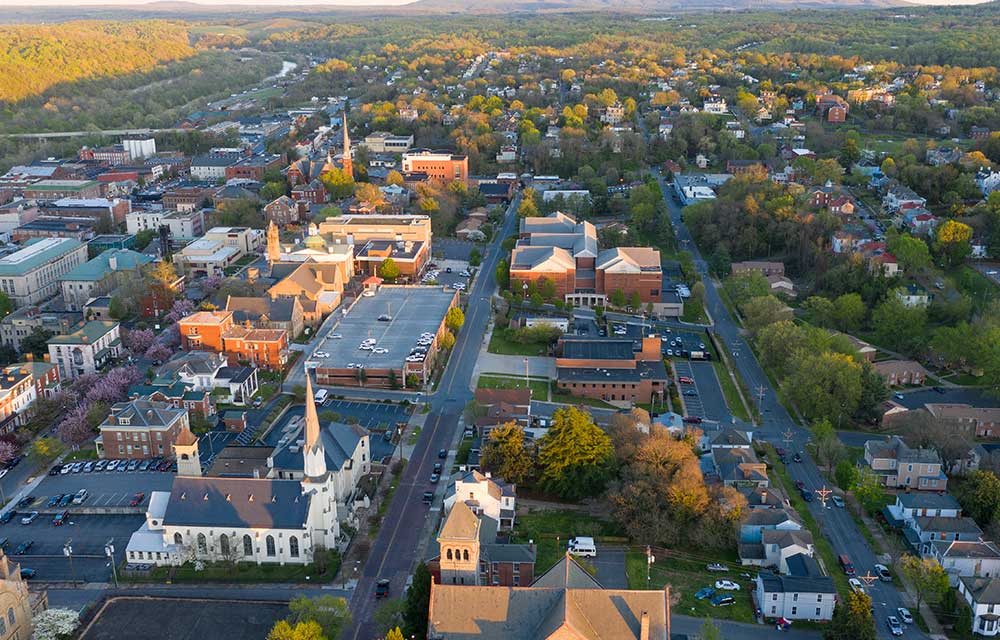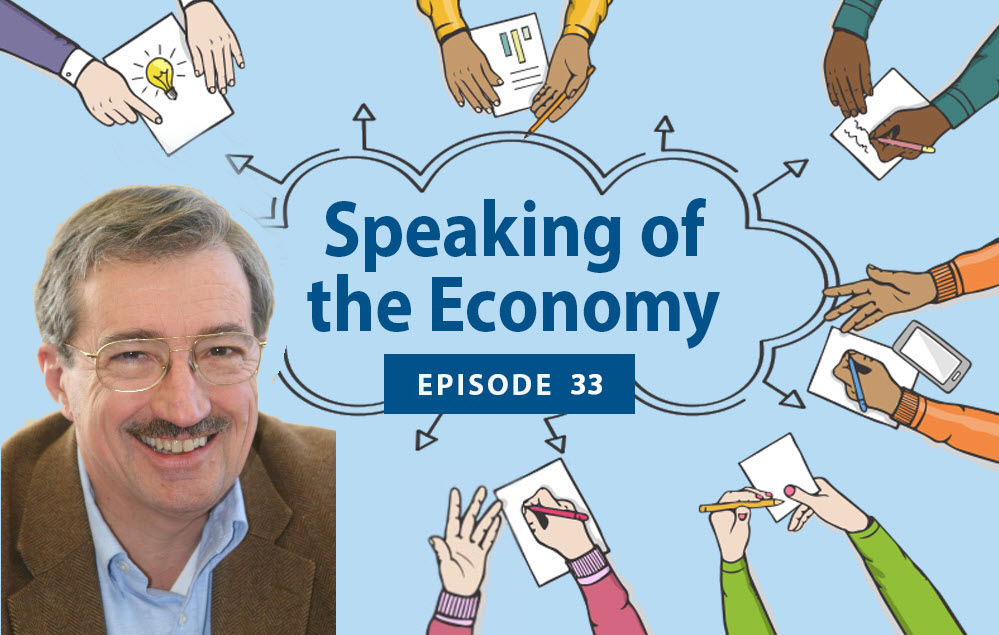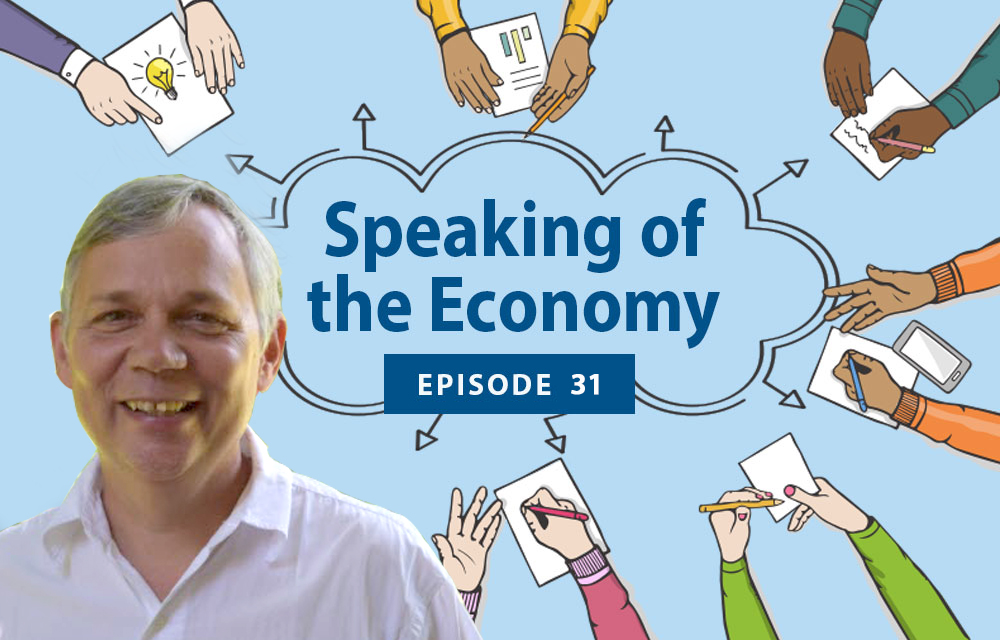Erika Bell and Hunter Jones describe the importance of the Federal Reserve Bank of Richmond connecting with small towns and rural communities throughout the Fifth District, including those in western North Carolina recovering from Hurricane Helene.
Rural Spotlights
Many American small towns and rural areas are thriving. Others are struggling, held back by obstacles such as population loss, job loss, lower labor force participation, less access to investment capital, and lower median incomes compared to many urban and most suburban areas. The Richmond Fed seeks to understand obstacles to economic growth and labor market engagement, and to help in the search for solutions in furtherance of the Fed's employment and Community Reinvestment Act mandates. Of course, large parts of rural America also lie within our district.
Thus, the Richmond Fed has been studying the various barriers to employment and investment that rural communities face. Among employment barriers, rural areas contend with both skill-based barriers (including education and training) and non-skill barriers (including personal barriers like health or child care; infrastructure barriers like broadband and transportation; and incentive barriers like benefits cliffs). Investment barriers include both supply-side issues (such as fewer sources of capital and a lack of coordination) and demand-side ones (such as limited staff capacity to develop investment-ready community and economic development projects).
The Richmond Fed is committed to learning about these challenges — and potential solutions — from our communities and sharing them broadly. What we have seen is that there is no one-size-fits-all approach to reaching economic potential in rural areas; the strategies and goals have to match the needs and desires of the community.
The map below highlights examples of communities and organizations deploying interesting or promising strategies that they are excited about. These examples come from our work in Fifth District communities and our relationships with community leaders. Click on the topics below to learn what communities are doing within key focus areas. Themes we've seen among these strategies have included:
- Play to your area's strengths: Though there are challenges, rural areas have tremendous assets — from natural resources to beauty to rich institutions — that can serve as engines of development.
- Tell a compelling story: We see communities working hard to share their stories as a way to attract new investment and new residents.
- Support strong local leadership: Community work takes strong, dedicated leadership, including from young leaders as communities age.
- Take a long-term view: Community change cannot be expected overnight. Successful communities keep at the work for the long haul and celebrate wins along the way to keep the ball moving.
- Embrace regional collaboration: Economic issues cross geographic boundaries. Communities can benefit from larger-scale approaches by working together.
- Prioritize quality of life: Jobs will go where the workers are, and workers will go where quality of life is high.
The Richmond Fed's rural work includes:
- Programming: Our Rural Investment Collaborative offers tools to rural leaders for improving their communities' access to capital. In other programs, such as the annual Investing in Rural America Conference, we convene to learn from rural communities, share what we've learned, and help them learn from one another.
- Engagement: Our work is centered on relationships with rural communities that help us understand issues at the ground level.
- Research: We turn what we learn into analysis to share insights and connect communities to strategies
Have ideas? Let us know!
Featured Content
Many rural areas lack sufficient resources to strengthen the STEM pipeline. How is one nonprofit in South Carolina addressing the workforce gap in hopes of reducing rural flight?
Daniel Davis talks about the importance of understanding the economies of small towns and rural areas. He also discusses the work that the Federal Reserve Bank of Richmond has done to examine these economies and connect with community leaders, including the recent launch of the Richmond Fed's Center for Rural Economies and Investing in Rural America webinar series.
Mary Donnan and Victor Farmer discuss two projects in the Fifth District that illustrate the challenges of economic development in rural communities and the importance of philanthropic organizations in addressing those challenges. They also reflect on how the Richmond Fed's Community Investment Training program, whose core curriculum is provided by Invest Appalachia, helped move the projects forward.
At the Richmond Fed's sixth annual Investing in Rural America Conference, child care providers and experts shared the challenges of providing affordable, quality early care and education in rural communities, as well as solutions they have developed.
The Community Investment Training helps rural leaders jump-start development projects, and based on the 2024 and 2025 cohorts, the Richmond Fed's community development team shares some lessons learned.
Although the U.S. has been graying, populations in many rural counties have actually grown younger over the last several years. What could this mean for rural economies?
President Tom Barkin discusses the hurdles to and potential for growth in rural communities.
A look at where USDA Rural Development funding goes across the Fifth District. Which programs drive total investments, and which states and counties get the largest shares of funding?
This post highlights the short-term and potential long-term impacts of Hurricane Helene on Western North Carolina's housing market while also exploring how pre-existing market conditions may interact with the storm's impact.
The benefits of early childhood education are well known, but factors such as cost and a shortage of child care workers still present obstacles.
Farms in the Fifth District produce necessary commodities like pork, chicken, soybeans, peanuts, and cotton. That production largely occurs in rural areas, creating value and employment opportunities in those communities.
Emily Corcoran and Jen Giovannitti discuss the demand and supply factors that influence the financing of community development in rural areas, as well as the issues that impede the flow of capital into the places that need it.
Philanthropic giving can make a big difference in small towns, if both sides can find each other.
Emily Wavering Corcoran and Jen Giovannitti
Rural communities can face a mismatch between supply of and demand for community development investment dollars. But through partnerships with local government, nonprofits, businesses, and CDFIs, some are developing creative solutions.
Leaders from the organizations receiving the grants are graduates of the 2024 cohort of the Rural Investment Collaborative's Community Investment Training program.
Deborah Diamond and Adam Scavette discuss how anchor institutions such as universities and hospitals fit into the economic life of communities.
Just 75 minutes from Richmond, Farmville and its surrounding counties are an idyllic setting for bargain hunters and outdoor adventurers alike. Recently, our Community Conversations Team made a visit to the area to learn more about their economic strengths and opportunities.
Although the communities surrounding universities experienced some shielding effects from previous recessions, the unemployment rate actually increased in these areas following the COVID-19 recession.
South Carolina's recruitment of a Boeing assembly plant to North Charleston in the late 2000s boosted the state's aerospace sector and Charleston's local labor market over the subsequent decade.
Rural areas were hit hard with labor shortages during COVID-19, more so than their urban counterparts. However, the tides have turned with rural wage growth now exceeding that of urban areas.
Jason Smith discussed the results of the first round of the Bank's Community Investment Training, which helps rural communities obtain funding for their economic and community development projects. He also shared his interview with one of the program's participants, Craig Sewell of the Southern Maryland Agricultural Development Commission.
In May, our Community Conversations team visited the Winchester area to learn more about their economic strengths and opportunities.
This post explores how changes in total population, out-of-the-labor-force population, and unemployment explain employment growth across the Fifth District's rural counties.
Host Tim Sablik shares some of the key insights from community development experts at the Richmond Fed's fifth annual Investing in Rural America Conference.
In April, President Tom Barkin, Regional Executive Matt Martin and Regional Economist Laura Ullrich met with local community and business leaders in North Carolina's Surry and Yadkin counties to gain a fuller understanding of the economic strengths and opportunities facing the region as part of the Bank's Community Conversations program.
Some rural and small-town communities see potential for outdoor recreation to reinvigorate their economies.
As our Community Conversations team learned on a recent trip to Southeastern Virginia, the pull between maintaining a rural, small town feel and embracing the potential benefits of urbanization hangs in the balance.
Matt Martin and Erika Bell share what they learned about workforce development from conversations with business and community leaders in Pickens County and Oconee County, South Carolina.
Rental housing has become less affordable across the country, but rural markets face additional difficulties.
Efforts such as subsidizing public transportation, providing access to auto loans, and limiting driver's license suspension laws could help address employment barriers for low-income and rural individuals.
Nicholas Haltom and Stephanie Norris
Proposal submissions are now open for the 2024 Investing in Rural America Conference poster session! Learn about the ways rural communities are addressing economic challenges in this virtual tour of posters from our 2023 conference.
The STEM East initiative aims to show students in eastern North Carolina how they can stay and thrive in their home communities.
Understanding and appropriately measuring the role that community colleges play in rural areas is important to how we evaluate policies and funding for workforce and community development throughout the rural Fifth District.
A unique partnership between Compass Point Preschool and Northeastern Technical College in Cheraw, South Carolina, makes affordable, high-quality child care accessible to parents entering the labor force.
John Mullin
Leveraging some of its natural advantages, Virginia has encouraged the industry's growth through tax incentives and other initiatives. It is now home to hundreds of data centers, many in Northern Virginia's "Data Center Alley."
Carroll County, Virginia, worked closely with Virginia Housing and developer Landmark Asset Services, Inc. to repurpose the county's old high school building into affordable rental housing.
President Tom Barkin shares how small towns in the Fifth District are putting their best foot forward to attract talent.
$440 million in competitive economic development grants from the 2021 American Rescue Plan Act have arrived in the Fifth District where the funds are expected to have an outsized impact in rural areas.
States and school districts are using a variety of policies — including financial incentives — to try to combat a teacher shortage.
States and communities are looking for remote workers as sources of economic growth. Is offering them cash and other perks a promising model of economic development?
Sierra Stoney and Tiffany Hollin-Wright
The New River Valley Regional Commission is an example of how a regional development organization can galvanize innovative, sustainable regional and local housing strategies to serve its small towns and rural communities.
Numerous factors — including population growth, education, housing, transportation, child care, health, and broadband availability — are shaping the differences in employment outcomes between rural and urban communities.
Kelly Bowers, economic development director for Hertford County, N.C., discusses the challenges and opportunities facing her community. She highlights the importance of collaboration across state lines and the need for infrastructure such as broadband and affordable housing to support growth.
Host Tim Sablik discusses his recent research on the value of entrepreneurs in the economic growth of rural places and small towns, as well as the obstacles that they face compared to more urban communities. Sablik also talks with Erika Bell and Laura Ullrich about what they have learned from their contacts in North Carolina and South Carolina about rural entrepreneurship.
Housing and transportation represent the two largest living expenses in most households, but local investment can address households' travel needs.
Intermediary organizations, including anchor institutions, rural development hubs, and collective impact backbone organizations, play an important role in rural capacity building.
Sierra Latham and Peter Dolkart discuss their work on the availability of affordable housing in small towns and rural communities.
Although people often associate high housing costs with urban areas, many households in rural areas also struggle with costly housing
The pandemic has worsened a long-standing national shortage of nurses. Rural communities face the greatest challenges.
Entrepreneurship creates many local benefits, but starting a new business in rural places can be challenging
Tressa Gardner provides an overview of the Southeastern Institute of Manufacturing and Technology (SiMT), the business incubator and other programs that it operates, and its role in supporting economic development in northeastern South Carolina.
Tiffany Hollin-Wright and Jessica King
The GoodCare Program in Virginia helps aspiring workers complete career pathways in health care, addressing workforce shortages in a sector essential to equitable pandemic recovery.
Mary Ann Gilmer of Goodwill Industries of the Valleys discusses the nonprofit's training program for healthcare workers and the importance of this work in rural communities, especially during the COVID-19 pandemic.
In Florence County, the Southeastern Institute of Manufacturing Technology and its Gould Business Incubator are fostering an entrepreneurial ecosystem and fueling small business development in South Carolina.
The Danville region in Virginia has moved the needle on early childhood education and now has an ecosystem in place to help address future challenges.
Angela Wells discussed how Smart Beginnings Danville Pittsylvania prepares children in Southside Virginia for success in school and in life.
President Tom Barkin shares innovative strategies and success stories from small towns around the Fifth District.
Focusing on a complete household's needs, Garrett County Community Action Committee's integrated "2Gen approach" links children to high-quality early education and their parents to services that build financial security.
Duane Yoder, executive director of the Garrett County Community Action Committee, discusses how his organization adopted a holistic model for addressing poverty in rural communities.
Tiffany Hollin-Wright and Surekha Carpenter
Community development financial institutions (CDFIs) like Woodlands Community Lenders are uniquely positioned to help rural towns address unique challenges through place-based revitalization and by attracting investment.
Dave Clark discusses the role of Woodlands Development Group and his organization's community development financial institution in driving economic development in north central West Virginia.
Laura Dawson Ullrich and Lucas Moyon
Vance-Granville Community College's early college high schools and workforce programs are improving education and job opportunities for area residents.


